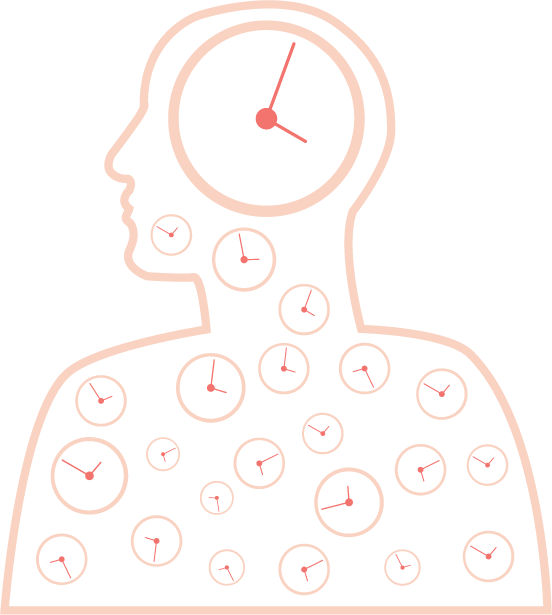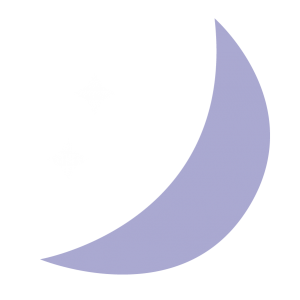RESPECT YOUR CLOCK

We all have a “master clock” in our brain and other body clocks (for instance, in the liver and skin). These clocks work together to control your body’s energy and hormone levels and they all need to be in sync in order for us to feel our best. This balancing system is known as your circadian rhythm.
Circadian Rhythm – the dance of your life:
A circadian rhythm is the 24-hour dance of your bodily functions, especially your sleep and wake cycle. Everyone’s clock is different and changes throughout your life. Paying attention to YOUR clock can decrease your risk of health problems triggered by insufficient sleep including Type II diabetes, heart disease, obesity, mental health disorders and certain types of cancer.
Things to know:
- You may not have the same sleep and alert cycle as your bed-partner, children or parents because sleep timing is determined by YOUR biology and can change during developmental periods and as you age.
- The environment plays a role: circadian rhythms commonly match the cycle of daytime and nighttime. Therefore, many shift workers find it difficult to sleep during the day and stay awake at night.
- Behavior is a factor. Eating a large meal later in the evening or using a cell phone near bedtime sends signals to the brain that it’s time to be awake. These choices can push your internal bedtime later, which can be unhealthy on a regular basis.
Interesting facts about circadian rhythm:
- We all have an energy dip in the afternoon, regardless of whether we eat lunch or not.
- Most elderly individuals tend to be “morning larks.”
- All teenagers have a natural shift in their sleep timing and become “night owls.” Even teenage animals go to bed later.
- When you are lacking sleep, you will notice bigger swings in your circadian rhythm of sleepiness and alertness.
- Some people are more adaptable than others and can adjust their sleep/wake cycles easier.
- There is evidence humans use to sleep in shifts, with the “first sleep” a couple hours after dusk followed by a wake period of 1-2 hours for writing or sex and then a “second sleep.” Today’s society is less flexible and often does not allow for this sleep pattern.
- Because we lose an hour of sleep with Daylight Savings Time, the chance of heart attacks increases by about 15-25% after we spring forward.
- Jet lag leaves you feeling more than simply tired. You might experience nausea or have a hard time paying attention. All the clocks in your body are trying to adjust to the new time.
- Your circadian rhythm works best when you have a consistent bedtime at night and wake time in the morning each day, even on the weekends. Try not to vary your sleep timing by more than 1-2 hours.
- Most adults need 7+ hours of sleep on a regular basis, although if you sleep at the time that is not right for your body, you will not feel as refreshed.
- Pay attention to your body and notice feelings of alertness and drowsiness.
- Another fun fact – Plants, fungi and even some types of bacteria have circadian rhythms, too!


Take the “4 Week Sleep Challenge” to learn more about your sleep pattern.
The better your sleep habits, the better you’ll feel!
